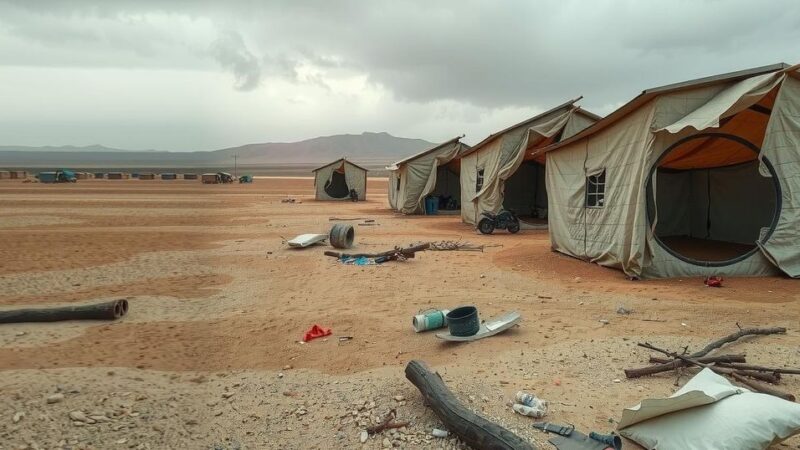The IDF struck over 100 Hamas targets in Gaza following attacks on Israel, while Brazil investigates an IDF soldier for alleged war crimes. Tensions grow as Israel warns Hezbollah about withdrawal beyond the Litani River. Concurrently, the IDF introduced a new haredi combat brigade to integrate ultra-Orthodox soldiers. U.S. Secretary of State Blinken highlighted public pressure’s influence on Hamas’s negotiation stance.
The Israeli Defense Forces (IDF) have conducted a series of strikes against over 100 Hamas targets in Gaza, which were necessitated by recent projectile attacks on Israeli territory. The Israeli Air Force executed these precision strikes, neutralizing multiple Hamas operatives and crippling key launch sites. In parallel, Brazil is investigating an IDF soldier for alleged war crimes in connection with actions taken during military operations in Gaza. The Brazilian authorities, led by the Hind Rajab Foundation, are pursuing legal action focused on a soldier allegedly involved in the destruction of civilian homes. In the backdrop of heightened tensions, Israel warns of serious repercussions if Hezbollah does not withdraw beyond the Litani River. The IDF also initiated a new haredi combat brigade aimed at integrating ultra-Orthodox soldiers into military service while respecting their religious practices. Finally, U.S. Secretary of State Antony Blinken noted that external pressures have influenced the dynamics of hostage negotiations with Hamas, revealing complexities in the ongoing conflict.
The ongoing conflict between Israel and Hamas has intensified significantly since the major attack initiated by Hamas on October 7, resulting in the death of over 1,200 individuals and the taking of approximately 240 hostages. The Israeli military response has included airstrikes targeting Hamas facilities in Gaza, while the situation has been further complicated by legal challenges faced by Israeli soldiers abroad. Brazil’s investigation into alleged war crimes reflects the broader international scrutiny regarding military actions in the region. The situation is further complicated by the involvement of other actors in the vicinity, such as Hezbollah and the international community’s influence on the peace negotiations between Israel and Hamas. The establishment of dedicated military units such as the haredi combat brigade represents Israel’s efforts to integrate various segments of its population into the military framework while addressing their unique cultural needs. This initiative is part of a broader strategy to ensure security and maintain a robust defense posture amid ongoing threats.
In summary, the IDF’s recent military actions against Hamas illustrate the ongoing hostilities and the complexities of the conflict in Gaza, while Brazil’s investigation into an IDF soldier signifies international scrutiny regarding military conduct. Furthermore, Israel’s stance towards Hezbollah highlights the geographical and political challenges faced in maintaining regional stability. The formation of a haredi combat brigade reflects Israel’s adaptability in addressing societal divisions within its population, emphasizing the importance of unity in the face of external threats. Finally, the diplomatic efforts surrounding hostage negotiations underscore the intricate dynamics of conflict resolution in this turbulent region.
Original Source: www.jpost.com






